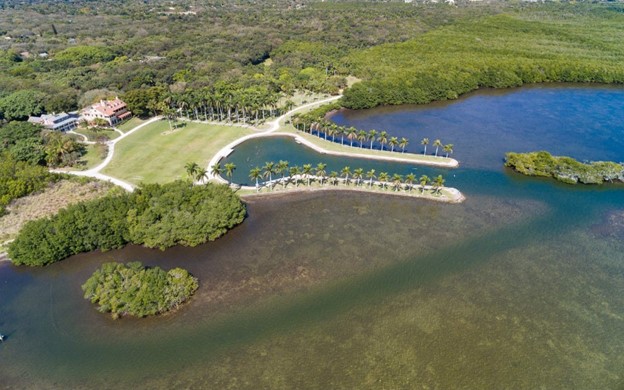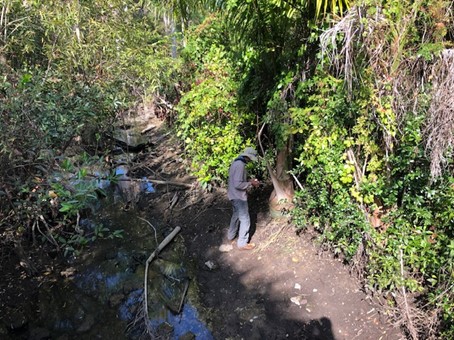The Deering Estate is a cultural asset and historical site in southeast Florida, surrounded by beautiful native habitats and diverse vegetation. From coastal dunes, salt marshes and mangrove forests, to tropical hardwood hammocks and pine rocklands, each represents a unique native ecosystem found in this region. Many of these landscapes are degrading and/or shrinking, so efforts are currently underway to monitor and manage sites like the Deering Estate for impacts from humans and natural causes.
Proper water management is among the top priorities to maintain these area, and past projects have focused on redistributing water flows back into coastal watersheds. In the case of the Deering Estate, however, water deliveries coming through man-made canals have altered natural surface water levels. The redirected water frequently floods large areas including hardwood hammocks: forests that form at higher elevations compared to marshes, and so they rarely flood. The fluctuations in surface water flows, combined with daily tidal cycles, could be having negative effects on the hardwood hammock vegetation that is not used to dealing with much flooding.
Himadri Biswas, a PhD student with the NSF CREST Center for Aquatic Chemistry and Environment, is using remote sensing techniques to track variations in surface water levels and monitor the effects on hardwood hammock vegetation at the Deering Estate. Biswas has installed several water level loggers at strategic locations throughout the area, and since June 2019 these loggers have been taking measurements every 15 seconds. The data are downloaded every two months for analyses, and hammock vegetation are also surveyed at regular intervals to detect any changes. With this information, Biswas and his team are gaining a better understanding of the extent of the changes brought on by water deliveries.
Preliminary results have shown that sudden surges from water deliveries can have significant impacts on vegetation, causing stress and mortality to the plants and trees that make up drier hardwood hammocks. Further research will continue to aid water managers in developing strategies to better protect and conserve our ecosystems, including the unique hardwood hammocks found at the Deering Estate.



The NSF CREST Center for Aquatic Chemistry and Environment is housed within the Institute of Environment, a Preeminent Program at Florida International University.